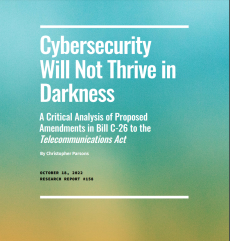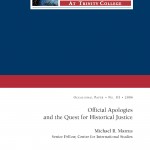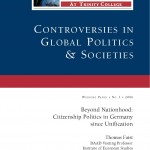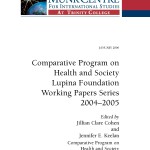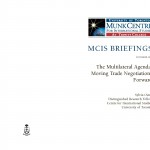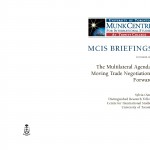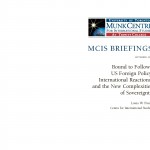Official Apologies and the Quest for Historical Justice
May 8, 2006
“Never apologize, never explain” — so goes the adage attributed to, among others, Talleyrand, Benjamin Jowett, Benjamin Disraeli, Lord Fisher, Evelyn Waugh, and (in a slight variation) John Wayne (Gleason 2003; Lazare 2004, pp. 255–6).
Read full article